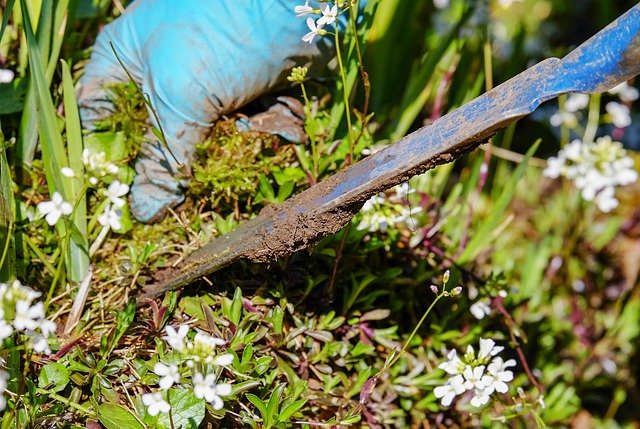Weed Remover: A Comprehensive Guide to Keeping Your Garden Pristine
Maintaining a beautiful garden can be a rewarding experience, but dealing with unwanted weeds can be a constant challenge. Weed removers are essential tools for gardeners looking to keep their outdoor spaces neat and tidy. This article will explore various methods and products designed to help you effectively manage weeds in your garden, lawn, and landscaped areas.

How can mulch be used as a natural weed remover?
Mulch is an excellent natural weed deterrent that also provides numerous benefits to your garden. By applying a thick layer of organic mulch around plants and in garden beds, you create a barrier that prevents weed seeds from reaching the soil and germinating. Additionally, mulch helps retain moisture, regulate soil temperature, and improve soil quality as it decomposes. Popular mulch options include wood chips, straw, leaves, and compost. For best results, apply a 2-4 inch layer of mulch, being careful not to pile it directly against plant stems or tree trunks.
What are the best practices for removing weeds from a lawn?
Maintaining a weed-free lawn requires a combination of prevention and active removal. Regular mowing at the proper height for your grass type can help prevent weed growth by shading the soil and reducing seed germination. Overseeding bare patches with grass seed can fill in areas where weeds might otherwise take hold. For existing weeds, manual removal with a weeding tool or spot treatment with herbicides can be effective. Pre-emergent herbicides applied in early spring can prevent weed seeds from germinating, while post-emergent herbicides target actively growing weeds.
What are some eco-friendly alternatives to chemical weed removers?
For gardeners seeking environmentally friendly weed control methods, several alternatives to chemical herbicides exist. Boiling water can be poured directly onto weeds to kill them instantly, making it an effective solution for weeds growing in cracks or pathways. Vinegar, especially when mixed with salt and dish soap, creates a potent natural herbicide that can be sprayed on weeds. Cornmeal gluten acts as a natural pre-emergent herbicide, preventing weed seeds from sprouting. Additionally, landscape fabric or newspaper can be used as a physical barrier to suppress weed growth in garden beds.
How can proper plant selection and spacing help prevent weeds?
Choosing the right plants and implementing proper spacing techniques can significantly reduce weed growth in your garden. Select plants that are well-suited to your climate and soil conditions, as healthy, vigorous plants are better able to compete with weeds for resources. Plant densely to create shade and limit the space available for weeds to establish. Ground covers and spreading plants can be particularly effective at suppressing weed growth by quickly covering bare soil. Additionally, consider using companion planting techniques to maximize space usage and create natural barriers against weeds.
What are some popular weed remover products and their effectiveness?
When it comes to weed removal products, gardeners have a variety of options to choose from. Here’s a comparison of some popular weed remover products and their effectiveness:
| Product Name | Type | Effectiveness | Environmental Impact | Cost Estimation |
|---|---|---|---|---|
| Roundup | Chemical herbicide | High | Moderate to high | $20-$30 per gallon |
| Preen Garden Weed Preventer | Pre-emergent herbicide | Moderate | Low to moderate | $15-$25 per bottle |
| Fiskars Weed Puller | Manual tool | High (for individual weeds) | Low | $30-$40 |
| Flame King Propane Torch Kit | Thermal weed killer | Moderate | Low | $40-$60 |
| Dr. Earth Final Stop Weed & Grass Killer | Organic herbicide | Moderate | Low | $15-$25 per bottle |
Prices, rates, or cost estimates mentioned in this article are based on the latest available information but may change over time. Independent research is advised before making financial decisions.
Each of these products offers different advantages depending on your specific weed control needs. Chemical herbicides like Roundup provide broad-spectrum weed control but may have environmental concerns. Pre-emergent herbicides like Preen prevent weed seeds from germinating, making them ideal for long-term prevention. Manual tools like the Fiskars Weed Puller offer precise control and are environmentally friendly but require more physical effort. Thermal weed killers provide a chemical-free option for targeted weed removal, while organic herbicides offer a natural alternative with minimal environmental impact.
In conclusion, effective weed removal requires a multifaceted approach combining prevention, manual removal, and targeted treatments. By understanding the various methods and products available, gardeners can develop a comprehensive strategy to keep their gardens, lawns, and landscaped areas weed-free and thriving. Remember that consistency and patience are key when it comes to weed control, and a combination of methods often yields the best results.






